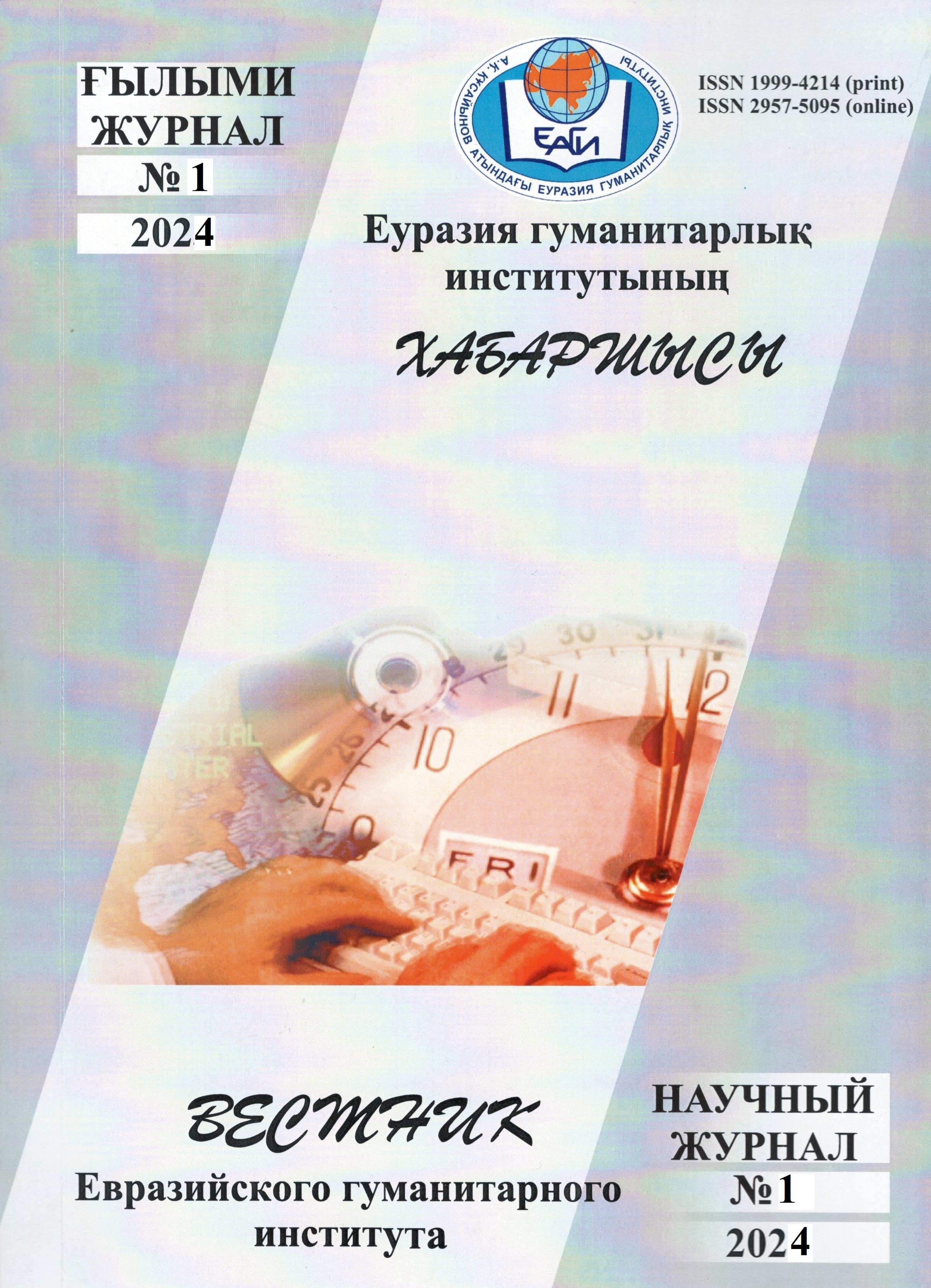CHRONOTOPIC FUNCTION OF LITERARY INTERIOR IN KAZAKH PROSE OF THE INDEPENDENCE PERIOD
Keywords:
modern Kazakh prose, material world, literary interior, artistic poetics, describe, detail, chronotope, chronotopic function.Abstract
The purpose of the study is to study how important the literary interior plays in the text of a work of art, to analyze this narrative unity in the context of artistic unity, which plays an important role in understanding the poetics of works, in transmitting their aesthetic value to the reader.
This article discusses the concept of "interior", which has entered the circulation of the Kazakh literary science and the problems of artistic poetics and the functioning of the literary interior. The activity of the literary interior is comprehensively analyzed and confirmed by examples. The review of the research works considered around the formation of the artistic space of the literary interior is given. The features of the application of the subject detail underlying the idea and theme of the work are determined. The relevance of the research lies in the fact that the Kazakh literary science still analyzes the issues of poetics and activity in modern Kazakh prose as an actual topic on the way to the formation of a literary theoretical concept. The analysis of the structural features of the literary interior in a literary text reveals its main and other functions. Activity in cognition of space, inner world, character, being in which the hero lives is analyzed in continuity with the problems of aesthetics in fiction.
The identification of modern Kazakh works of art and the manifestations of literary interior in them, taken on the object of research, increases the scientific value of the study. Examples are given from works about the place that the aestheticization of objects, details of the objective world occupies in a person's life.
The concept of interior in literature is analyzed in connection with such broad aspects of the work as plot, composition, symbolic system.
Practical significance of the research work: it can be used in lectures on literary studies, for students and undergraduates, doctoral students dealing with literary studies. In the process of interpreting a work of art on the theater stage, scriptwriters and production directors have a lot to do. The following methods were used in the study: theoretical analysis, generalization, systematization and comparative analysis.


